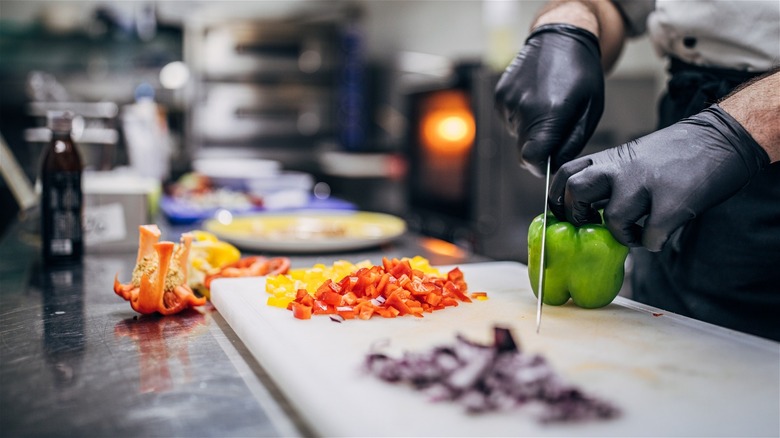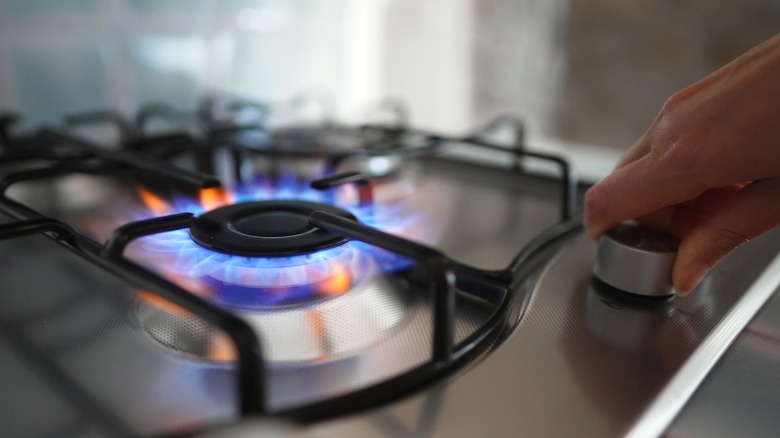You Should Be Wary Of Restaurants That Don't Prep Until They Open
Have you ever pulled up to a restaurant or fast food place right before it opened and noticed that someone unlocks the door and turns on the lights just minutes before welcoming you in? If you have, you'd be justified in thinking that it's odd nobody is already in there preparing for a potentially busy lunch service. Food preparation, or prep, is one of the most quintessential parts of being successful in the food service industry. Setting up a mise en place can be tedious work, it takes up a lot of time, and it's repetitive, but it's key in making sure a shift goes smoothly.
There are a couple reasons why you should be wary of restaurants that don't prep until they open. The first has to do with food quality. If they don't need to prepare beforehand, that means they are either using pre-prepared ingredients that just get ripped out of plastic bags and placed into the service area, or they are reheating precooked food. Neither are what you want unless the price reflects this lack of labor. The second reason is you will inevitably end up waiting longer for your food. If the staff members are scrambling to prep in the middle of service, that's one other task they can't do toward the goal of getting your food cooked and into your hands. These small delays stack up like a mountain as busy service progresses.
Why prep before opening is so important
Spending hours doing prep before opening the restaurant doors serves many purposes. Besides the obvious of getting ingredients like vegetables, proteins, and garnishes essential to any dish ready to be cooked with, it also allows time for various machines to get going. If the restaurant has soup on the menu, for example, it doesn't magically get hot five minutes before service. If there's a giant broiler or oven that's instrumental for warming up food to order, it doesn't become perfectly tempered at the flip of a switch. If a machine isn't at the right temperature when food starts getting cooked, there's a higher chance of something not being cooked to safety standards, thus increasing the chance of giving food poisoning to the customer.
There's also the mental aspect of having time before a service to get ready before customers start coming in. Having at least an hour of time in peace with nothing but prep work to do is like stretching before a workout. Once everything is in its place, you're then able to handle the stresses of delivering quality food at a pace that customers expect. If you're constantly having to worry about keeping up with prep work at the same time as keeping up with food orders, everybody's moods are more likely to be tense. When customers are happy, restaurant staff are happy, and it all stems from being set up for success by preparing everything before opening.

